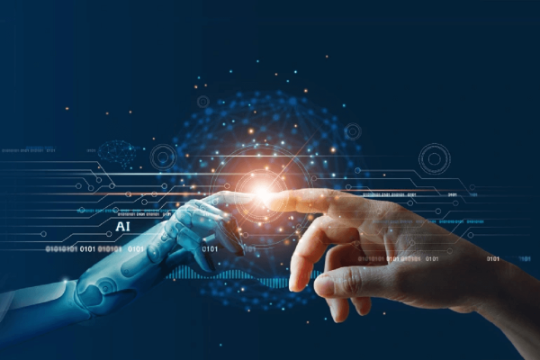Artificial Intelligence Must Not Exacerbate Inequality Further
Gabriela Ramos | 04 December 2021
UNESCO has put forward a framework that can help reverse the negative trends in the AI revolution.
We all agree that artificial intelligence (AI) has the power to drive development and even out global inequalities. Because it can process vast amounts of data rapidly, AI is ensuring more and more people in developing countries have access to microfinance, healthcare and remote-learning opportunities. AI helps make climate change mitigation more efficient, and can help deliver housing at a quarter of the usual costs when combined with 3D printing technology. It is easy to see how it could be a game-changer in the rapidly urbanising developing world.
But AI’s potential to help us achieve the Sustainable Development Goals, and to reduce global poverty is far from being realised. As research published by the International Monetary Fund last year shows, the current trends in AI technologies are more likely to exacerbate global inequalities than to address them.
According to a study published by Price Waterhouse Cooper, in 2017, countries investing in AI technologies could see 14 percent growth in their GDP by 2030. While estimates of this type vary, all agree that these economic returns will be very unevenly distributed.
According to the Organisation for Economic Co-operation and Development (OECD), around three-quarters of all new digital innovation and patents are produced by just 250 firms.
Out of the 15 biggest digital platforms we use, eight are from the US, and six are Chinese.
By 2030, North America and China will have made trillions of dollars’ worth of profit, while developing countries will still be reeling from the economic aftershocks of the pandemic which we know has already led to increased inequalities and worsened poverty. In the words of the speculative fiction writer, William Gibson: “The future is here, it’s just unevenly distributed”.
In June 2020, the United Nations Secretary-General Antonio Guterres laid out a UN roadmap for digital cooperation, and acknowledged his concerns that the fourth industrial revolution was making the world more unequal, and benefitting a small number of people. He charged UNESCO with the responsibility for building a global agreement on the ethics of AI, saying:
“There is currently a lack of representation and inclusiveness in global discussions. Developing countries are largely absent from or not well-represented in most prominent forums on artificial intelligence, despite having a significant opportunity to benefit from it for their economic and social development. The work done by the United Nations Educational, Scientific and Cultural Organization on the ethics of artificial intelligence is an example of the role that the United Nations can play to ensure inclusiveness”.
In 2020, UNESCO gathered 24 experts, from multiple disciplines, to draft the text. It then held public online consultations, regional virtual consultations and citizen workshops in 25 countries around the world. UNESCO then worked with countries to build a true consensus around that text.
On November 25,193 member states formally adopted UNESCO’s Recommendation on the Ethics of Artificial Intelligence. From now on, instead of competing with one another to corner the market on bigger and faster technology, these countries will be united by a new common vision – to develop human-centred, humane artificial intelligence. AI should help us to solve the world’s most pressing problems, not create more.
Now that the governments of 193 countries have committed to implement this framework of principles, we can work to reverse the negative trends of the AI revolution. Governments will have to manage this complex transition and UNESCO will assist them by providing training and tools to bridge the digital skills gap.
More than half the world is not yet online. UNESCO will support governments to bridge this enormous digital divide. We will foster access to digital technologies, by brokering new tech partnerships between developed and developing countries. Rich countries will assist poorer countries with technology transfer, investment and capacity building.
Many citizens in developing countries are particularly vulnerable to data-harvesting – in which their data is sold for profit by private companies. UNESCO’s recommendation calls on governments to introduce new laws allowing citizens to access and delete their personal data, and to put mechanisms in place giving citizens the right to seek redress if their data privacy is breached, including the provision of financial compensations.
UNESCO is calling on governments to implement effective legislation within the AI sector. We will provide platforms for international cooperation on AI for development, and promote international collaboration on AI research and innovation, with specific focus on developing countries.
This is a landmark moment: As well as championing the rights of the individual and of marginalised people everywhere, our recommendations place AI at the service of humanity. These new technologies must help us meet the most pressing challenges we face, such as deepening inequalities and the environmental crisis.
Gabriela Ramos is the Assistant Director-General of Social and Human Sciences at UNESCO.
This article was originally published on Al Jazeera.
Views in this article are author’s own and do not necessarily reflect CGS policy.
